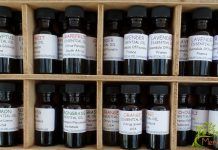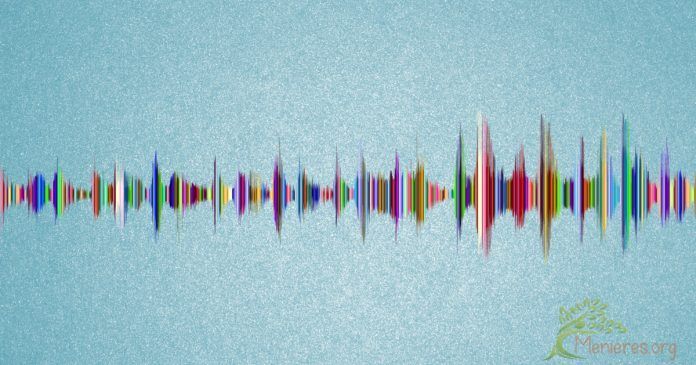
Tinnitus is one of the more irritating symptoms patients with Meniere’s Disease report. The condition begins with the damage or loss of sensory cells in your inner ear. People around loud sounds routinely, like the crew for a band, often experience the disorder. Sometimes progressive hearing loss is the result as time goes on. So, it’s not surprising to find sufferers looking for all potential treatments for easing discomfort, including essential oils.
Meniere’s and Other Causes of Tinnitus
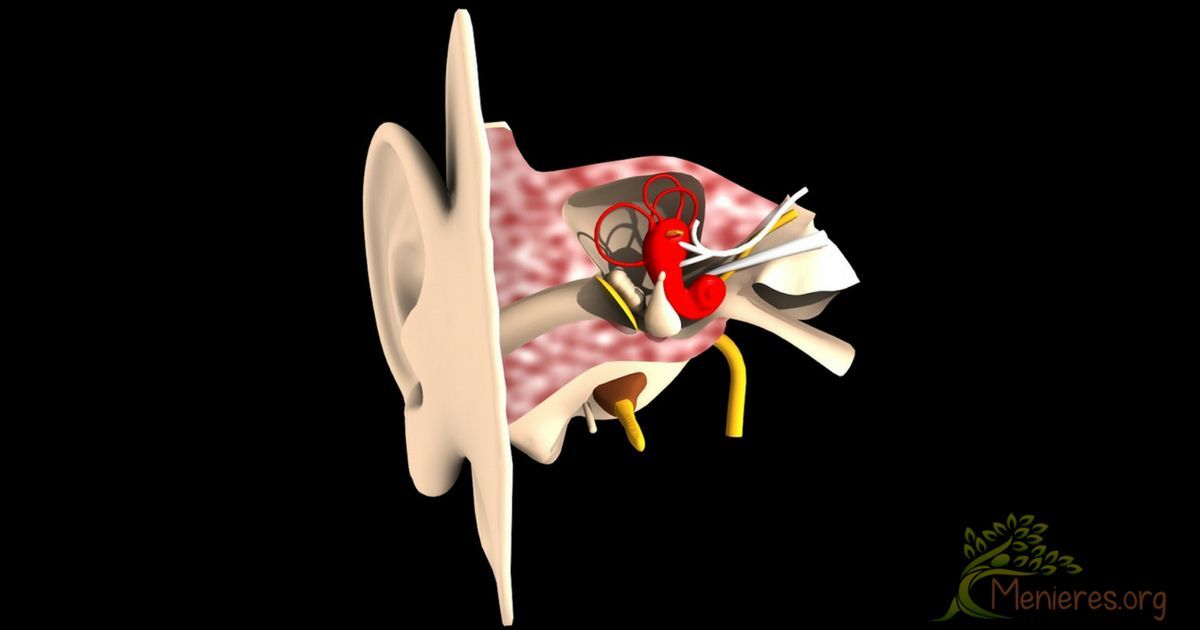
Many things can lead to Tinnitus (ringing in the ear) other than a loud noise. Contributing factors include:
- Age-related factors
- Cardiovascular disease
- Diabetes
- Ear infection
- Eustachian tube disorders
- Jaw dysfunction (TMJ)
- Head and neck injury
- Medications like antibiotics, aspirin, and diuretics
- Middle ear bone changes
- Neck strain
- Substances blocking the ear like impacted ear wax or another foreign object
- Traumatic brain injury
- Tumor near the arteries in the head or neck
As you can see, Tinnitus can come from some serious conditions. It means if you experience ringing in one or both ears frequently you really need to see your primary physician. While the person may end up giving you a recommendation for an ear-nose-and-throat doctor, it’s always good to start with someone who knows your health history.
Tinnitus Symptoms
While we use the phrase “ringing in the ear” for Tinnitus, not all people hear “ringing.” There are other sounds too. For some, it sounds like waves or water whooshing. For others, it seems like crickets or insect buzzing. Other sounds reported including a siren, musical notes, and static. The sound alone doesn’t tell us about Tinnitus. Symptoms may include:
- Increasing volume of sound
- Sound Sensitivity
- Dizziness: People with Meniere’s Disease or other neurological conditions often experience vertigo. This may lead to nausea, loss of balance and/or blurred vision.
- Hearing loss (this may be subjective depending on how loudly the Tinnitus manifests)
- Not everyone who develops Tinnitus has all symptoms. Usually, other problems occurring with tinnitus tie to an underlying, undiagnosed medical condition. The sooner you get to a physician the more quickly you can find out what exactly is going on and the best treatments.
Types of Tinnitus
Many people don’t know there is more than one type of Tinnitus:
- Low Frequency Tinnitus: The sounds people here become like droning or rumbles from lower octaves.
- Musical Tinnitus: Happens most often in people who have had tinnitus for several years. They hear music that is actually an auditory hallucination. This is also a rare Tinnitus type.
- Neurological Tinnitus: Caused by a disorder that somehow impacts how your brain interprets sound (like Meniere’s Disease Tinnitus).
- Objective Tinnitus: Rare, vascular deformities may cause this form of the disorder. An outside observer can hear this form of Tinnitus and there is a remedy for it.
- Pulsatile Tinnitus: Sounds like a heartbeat. Typically, it happens because of a change in blood flow near the ear.
- Somatic Tinnitus: It stems from problems related to a person’s sensory system.
- Subjective Tinnitus: The most common form of this condition, it usually comes from long exposure to intense noises. Some instances of Subjective Tinnitus come and go, and some disappear altogether.
Each of the Tinnitus types has similar strategies for helping ease the problem. There are no proven, sure-fire cures except for Objective Tinnitus. Your doctor may suggest things like supplements or lifestyle changes for your ear ringing, but remember that it will take time to find just the right combination of approaches to see results. That includes if you try essential oils recommended for Tinnitus.
Tinnitus Treatment Options
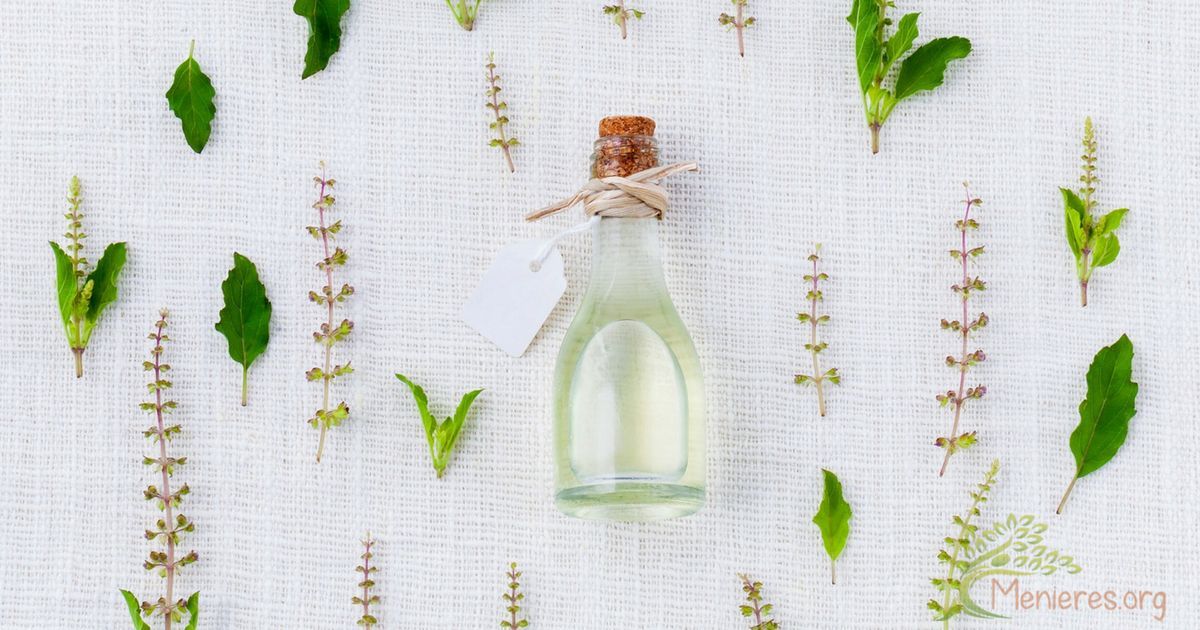
While there’s ongoing research for a cure for Tinnitus, some current treatments reduce the intensity or frequency of disorder. The goal of any such method is improving your quality of life even when an issue remains as background noise. You can work with your caregiver to produce a treatment plan about which you feel hopeful and comfortable. Below are a few of the options you can consider while you are researching the use of essential oils:
1. General Lifestyle Changes: There seems to be a correlation between what you eat and how pronounced your tinnitus becomes. Anything helping you stay at a healthy weight makes sense as blood flow can impact Tinnitus. A low-salt diet also seems helpful particularly to those with Meniere’s Disease. Studies show regulating caffeine and alcohol can also show results.
If you are finding you are sound-sensitive, consider a sound muffler for protecting your ears as it may help. However, some people find it makes their Tinnitus seem louder. Besides this, do whatever you can to avoid stress.
2. Hearing Aid: Tinnitus seems connected to some hearing loss in many people. Hearing aids sometimes help, with surveys showing up to 20% of patients getting significant relief. Remember, insurance does not cover all hearing aids, though. Younger patients experience greater results as do those who wear the hearing aid consistently during waking hours. Those with Meniere’s Disease-induced tinnitus may find a hearing aid for their one affected ear useful.
3. Sound Therapy: There are external noise systems some people find helpful for counteracting their Tinnitus. A sound-generator either has a noise loud enough it covers the ringing in the ears, distracts the mind from the sound of their tinnitus or tries to decrease neural overactivity that stimulates the disorder.
4. Medication: Some doctors try to manage Tinnitus with medications. These include Antidepressants and anti-anxiety formulas. Meanwhile, over-the-counter drugs like antihistamines prove useful if the person is experiencing tinnitus originating from an allergic response.
5. Education: While not a “treatment” per se, learning about your condition and educating those in your circle can give you a lot of day-to-day relief from long explanations. You can find out the situations that might make your Tinnitus feel worse, for example, and avoid them alone or with friends! Tinnitus need not be a diagnosis that leads to a solitary lifestyle. You just need to know how to prepare for different environments.
You may or may not find the above-mentioned treatments suited to your budget or lifestyle. So, what about essential oils for Tinnitus?
Using Essential Oil for Ringing Ears
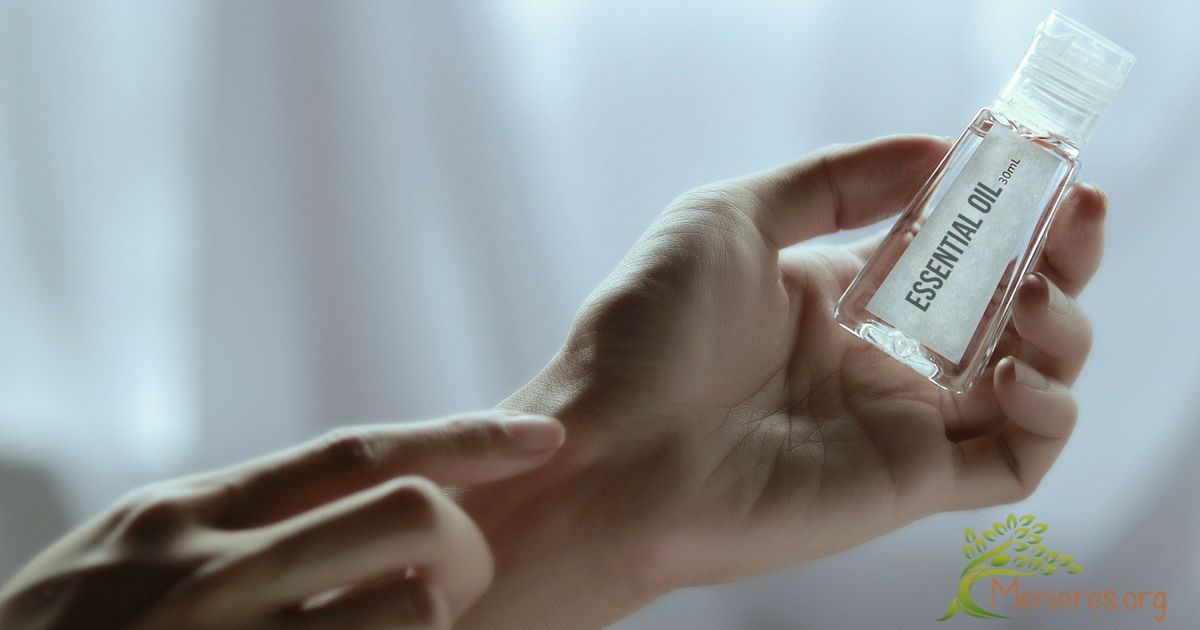
Essential oils come from parts of plants. The plant parts include bark, flowers, leaves, and roots. These are extraordinarily strong, and sometimes you need to dilute them with a carrier oil (like coconut) to avoid skin reactions. In no instance do you ever put essential oils into your ear. Rather, apply about 3 drops on your earlobe, just behind your ear and on your neck close to your ear. Gently rub this in.
Here are oils people find effective for Tinnitus relief:
- Basil: Basil soothes muscles and calms some throbbing some people experience with Tinnitus. Note: Stick to Sweet Basil for this purpose.
- Cypress: Cypress improves blood circulation, so it may help people whose Tinnitus stems from disorders there. It also has a very calming effect stressors that may exasperate the condition.
- Helichrysum: Is part of the sunflower family that has the folk name of Everlasting Flower. Besides tinnitus Helichrysum is suitable for treating skin inflammation. This is why it may help Tinnitus too, specifically inflammation around the neck and ears. As an extra benefit, this may also decrease ear wax buildup.
- Juniper Berry: Juniper berry works best for Tinnitus caused by infections or inflammation.
- Lavender: Is a popular essential oil because it relieves stress and the anxiety contributing to Tinnitus. For those with allergies or colds, lavender clears air passages that may, in turn, reduce loudness.
- Patchouli: Has a strong aroma and works on improving circulation. It works well with Helichrysum for Tinnitus. One drop goes a long way.
- Petitgrain: Comes from Bitter Orange leaves. This oil has antispasmodic qualities and helps put the nervous system back into balance.
Summing it All Up: Tinnitus Relief with Essential Oils
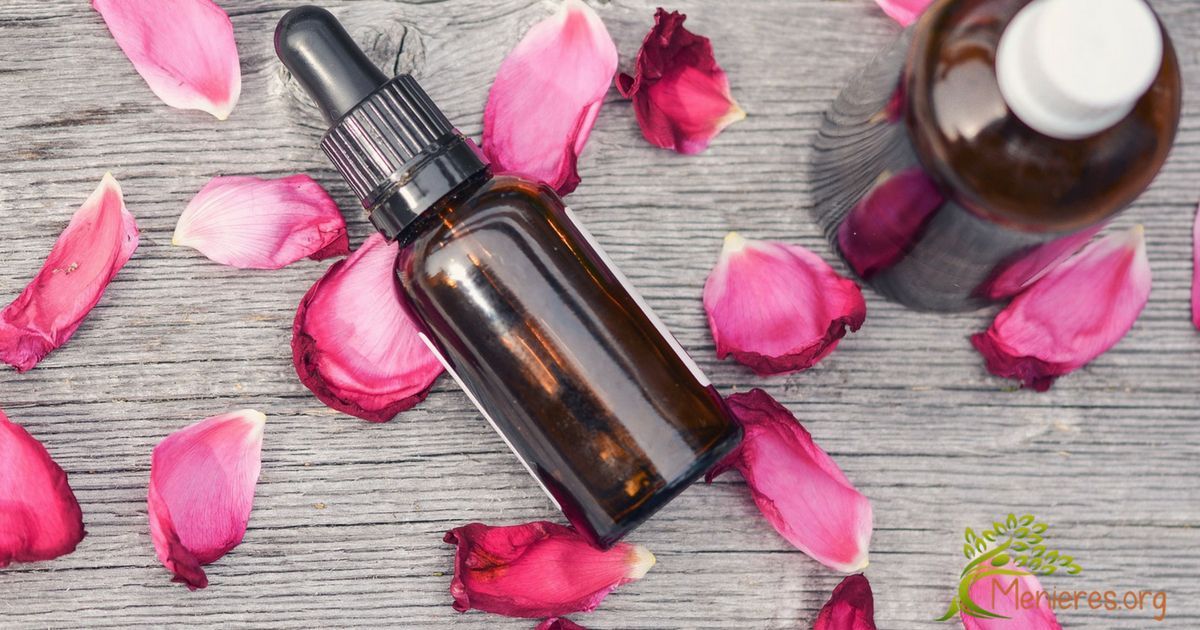
Essential oils will not cure your Tinnitus. But, they may make living with it a lot easier. If you are considering trying them, consult with the physician first to discuss your options just to be on the safe side. Essential oils play nicely with a person’s treatment plan, but your caregiver should always be aware of everything on your wellness platter.
Also, please remember, if you have an underlying cause that contributes to Tinnitus, these options may vary. People with a Meniere’s Disease diagnosis have a more extensive list of oils that target Vertigo versus ear-ringing, for example. Holistic approaches to your care are the best by far. Too much focus on one treatment when you have more than one symptom usually doesn’t provide long-term relief.


